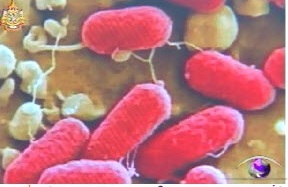BANGKOK, June 6 – Thailand’s Ministry of Public Health has issued four measures to prevent the spread of the deadly E. Coli bacteria as the disease has claimed at least 22 lives, mostly in Germany, and one death in Sweden.
After a public health meeting on Monday, Public Health Minister Jurin Laksanawisit said E. Coli O104 is the most severe strain of all five E. Coli strains as it can dissolve red blood cell and cause kidney failure.

Permanent Secretary for Public Health Paijit Warachit said in a severe case, blood transfusion is performed in the treatment of this deadly disease which is contracted by eating contaminated food and water.
The ministry’s measures against the E.Coli include educating tourists from the European Union at the international communicable disease control checkpoint at the airport and have them fill out health information and meet doctors they fall ill.
For the public, the ministry urges them to eat freshly-cooked food, to wash hands before meals and using serving spoons.
Moreover, government and private hospitals must apply the same standard in screening patients with bloody diarrhea and a record of travelling back from European Union countries within one week.
The Department of Disease Control is the main mechanism in supervising prevention measures, he added.
Imported food from Europe checked at random is another of the ministry’s four measures.
Secretary-General Dr Pipat Yingseri of Thailand’s Food and Drug Administration said the ministry’s random checks on imported fruit and vegetables, including apples, raspberries, tomatoes, mushroom, kiwi fruit, avocadoes, parsley and celery from European Union countries since June 2 have found no irregularities.
Most fruit and vegetables from Europe emanate from France and Italy followed by Belgium.
European farming ministers will hold emergency talks Tuesday in Luxembourg on the E. Coli outbreak, a spokesman for the European Union’s current Hungarian chair told AFP. The outbreak has killed at least 22 persons and has left some 2,000 people ill across Europe.




